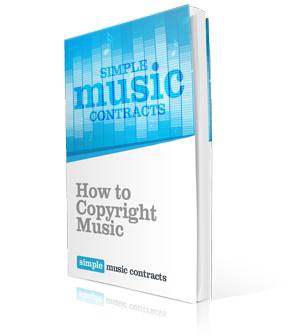Over 500 Music Publisher Contacts
Download Instantly in Excel
Ability to Sort by any Category
Ability to Track Who You’ve Contacted
One Year of Updates
Get your music to A&R all over the world!
A Look At Music Publishing
To get an idea of how to go about getting a music publishing deal, the first and most important thing to understand is exactly what music publishing is. In its core form, music publishers control the business aspects of a song. They are responsible for getting the song played on radio and licensing songs for TV and movies, as well as collecting revenue that comes from these sources. There also are other venues songs can be used that will generate income, and publishers are responsible for finding these venues and making payments to the writer. Publishers also take songwriters’ songs and find artists to perform them and, hopefully, make the song into a hit.
And obviously a publisher will be compensated for these services. For payment purposes, a song is divided into two portions, a share for the writer and a share for the publisher. While this varies depending on the publishing deal struck between the writer and the performer, there will be certain percentages assigned to each share. Of all income coming in from a song, the publisher may pay the writer, say, 50 percent while retaining the other 50 percent for their services.
Publishing deals will also vary in many other aspects, as far as the duration of the contract, as well as if the publisher has exclusive access to all of the writer’s songs. These terms will also depend on whether the songwriter is also the performer, or, as often is the case, just attempting to get his or her song heard by artists that would perform the song.
With the basics of how publishing works out of the way, the business of obtaining a publishing deal is much trickier. Whereas many record labels have demo submission policies for artists wishing to obtain a record deal, this is often not the case when it comes to publishers. Many publishers rely exclusively on other music industry contacts or talent scouts to tip them off to the next great songwriter, but that doesn’t mean that you can’t get your music heard by a publisher.
The most important thing is to get your name out there—network, network, network. As stated above, if you have even a little name recognition, you are much more likely to have a publisher listen to your song. If you live in or near an area with high populations of publishers (New York, L.A., Nashville, etc.), find out where publishers often congregate and go there with the intentions of getting to know others in the business. Don’t bother anyone to the point of annoyance, but it’s fairly easy to strike up conversations with people as friends who may turn out to be in the music industry or know people who are. If you do not live in one of these areas, you can still make your name known. Start by building your following where you do live and build a strong internet presence. When you have started to become known, it’s time to contact publishers who deal with similar artists and try to set up a meeting, or at least receive permission to send your demos. Having spoken with someone in the publishing office and gotten permission to send your work is a great way to avoid having your material thrown into a trash can as soon as it arrives.
Finally, be persistent. You will most likely receives “no’s” in your search for a music publisher. You may well be told “no” many times, in fact. But if your songs are good enough to compete with the best songs being played on radio, and you consistently make connections and make yourself known to those in the industry, you will eventually land that deal.

